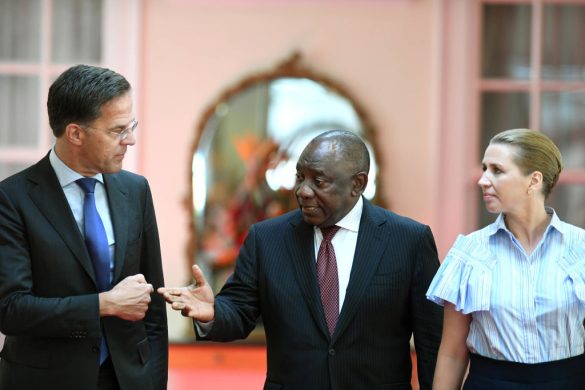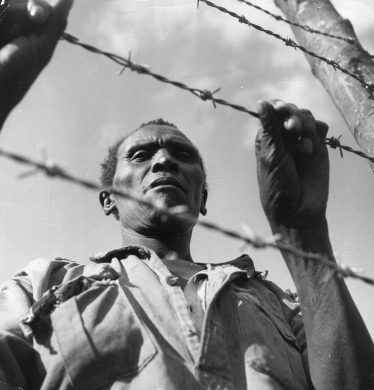Et nyt studie fra Verdensbanken og FN anslår, at piraterne ud for Afrikas Horn har krævet en samlet løsesum på over 400 millioner dollars (2,2 mia. kr.) mellem 2005 og 2012 for i alt 179 skibe, som blev kapret ud for Somalias kyst og farvandet som helhed.
Studiet med titlen “Pirate Trails: Tracking the Illicit Financial Flows from Piracy off the Horn of Africa”, går bag om den højt profilerede vestlige sømilitære indsats mod piraterne og søger at snuse sig frem til, hvor de mange penge egentlig havner.
Og konklusionen er, at de kanaliseres ud i kriminelle netværk og -aktiviteter, fremgår det af Verdensbankens netsted fredag.
Rapporten når også frem til, at det er bagmændene, der snupper næsten hele gevinsten, ikke piraterne ude på vandet, som gør det beskidte arbejde.
De får i sammen-ligning næsten ingenting. Alligevel er selv dét mange hurtigt tjente penge i et af verdens fattigste lande med ringe udsigt til ordentlige jobs og en bedre fremtid.
For vi taler om 200.000 til 300.000 kr. for et kapret skib pr. mand.
WASHINGTON DC, 31. October 2013: Twenty first century Somali Piracy not only creates problems in the region, but also has a global impact.
Unchallenged piracy is not only a menace (trussel) to political stability and a threat to international security, but it also undermines global growth prospects going forward. Up until now, little attention has been paid to tracking and disrupting the financial flows from piracy.
The study by the International Criminal Police Organization, United Nations Office on Drugs and Crime and World Bank attempts to understand the illicit (kriminelle) financial flows from pirate activities off the Horn of Africa.
The study focused on: Djibouti, Ethiopia, Kenya, Seychelles, and Somalia.
The study analyzes
1) how much money is collected in ransom payments (løsepenge);
2) how and to whom this money – the proceeds (indtægterne) of piracy – are distributed;
3) how these proceeds may be invested.
Hovedkonklusioner
Who benefits from the proceeds of piracy?
• Pirate Financiers stand in the middle of the piracy network. They are ” The Money Kingpins”, Investors and Beneficiaries of the piracy business. On average, they collect from 30 to 50 per cent of total ransom, working individually or as a group.
• Low Level Pirates, “The Foot Soldiers”, typically receive a standard fee of 30.000 to 75.000 US dollar per ship, which only amounts to 0,01 – 0,025 per cent of an average ransom payment.
• The local community provides goods and services to pirates, including food, repair services and khat which is a legal drug in Somalia.
How are the proceeds of piracy moved, invested, and used?
The main reported locations of pirate financiers’ assets, suggest that contrary to conventional wisdom, many investments of proceeds of piracy are actually made within Somalia.
The proceeds are typically moved by cross – border cash smuggling, trade based money laundering (hvidvask af penge), bank wire transfer and the abuse (misbrug) of Money of Value Transfer Services.
Investments from the proceeds of piracy
Pirate financiers invest into a range of sectors, both legitimate business activities (in order to launder money) and criminal activities:
• Some of these proceeds are recycled into financing criminal activities, including further piracy acts, human trafficking, including migrant smuggling, and investing in militias and military capacities on land in Somalia.
• Proceeds from piracy also find their way into the khat trade particularly in Kenya, where the khat trade is not monitored and therefore the most vulnerable to this risk.
How to Break this Cycle?
There is need for a strong commitment by countries in the region to work together to
• Better Monitor the Financial Flows from piracy and share regional financial intelligence
• Improve Cross-border Controls, especially border entry – exit points, and
• Improve Regional Cooperation and International Support.
Man kan læse meget mere på
http://web.worldbank.org/WBSITE/EXTERNAL/TOPICS/EXTFINANCIALSECTOR/0,,contentMDK:23491862~pagePK:210058~piPK:210062~theSitePK:282885,00.html
Og hente (downloade) det 129 sider lange studie direkte på
http://siteresources.worldbank.org/EXTFINANCIALSECTOR/Resources/Pirate_Trails_World_Bank_UNODC_Interpol_report.pdf
Heri optræder også et executive summery – sammendrag.














